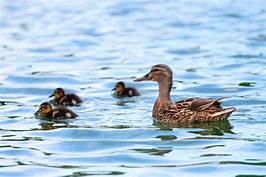Can You Keep a Lion as a Pet?
Lions are majestic creatures that hold a special place in our collective imagination. Their strength, beauty, and regal bearing have inspired awe and admiration for centuries. However, it's important to remember that lions are wild animals with complex needs and a natural place in the African savanna. Keeping a lion as a pet is not only dangerous but also unethical.

The Dangers of Keeping a Lion as a Pet
Lions are not domesticated animals. They have not been bred or selected for their suitability as pets. Keeping a lion as a pet poses numerous risks to both the animal and the humans involved.
1. Size and Strength: Lions are large animals that can weigh up to 500 pounds and stand over 8 feet tall. Their powerful jaws and sharp claws can inflict serious injuries or even death.
2. Instinct to Hunt: Lions are predators with a natural instinct to hunt. Even if a lion is raised in captivity, its predatory instincts remain strong. This can lead to aggressive behavior towards other animals and humans.
3. Territorial Behavior: Lions are territorial animals that defend their territory vigorously. Confining a lion to a small enclosure or backyard can cause stress and frustration, leading to unpredictable behavior.
The Ethical Concerns of Keeping a Lion as a Pet
In addition to the dangers involved, keeping a lion as a pet also raises significant ethical concerns.
1. Animal Abuse: Keeping a lion in an environment that is not suitable for its needs constitutes animal abuse. Lions require vast territories, specialized diets, and social interactions with other lions. Confining them to a domestic setting deprives them of these essential requirements.
2. Demand for Exotic Pets: The demand for exotic pets like lions fuels a cruel trade that involves the capture and exploitation of wild animals. The illegal trade in exotic animals poses a serious threat to wildlife populations worldwide.
3. Conservation: Lions are a threatened species facing numerous challenges in their natural habitat. Keeping lions as pets contributes to the decline of their populations by reducing the gene pool and hindering conservation efforts.
Conclusion
Keeping a lion as a pet is a reckless and unethical practice that poses risks to both humans and animals. Lions are wild animals that belong in their natural habitat, not in captivity. Choosing to keep a lion as a pet not only puts lives at risk but also contributes to animal abuse and undermines wildlife conservation efforts.
Declaration: All article resources on this website, unless otherwise specified or labeled, are collected from online resources. If the content on this website infringes on the legitimate rights and interests of the original author, you can contact this website to delete it.






